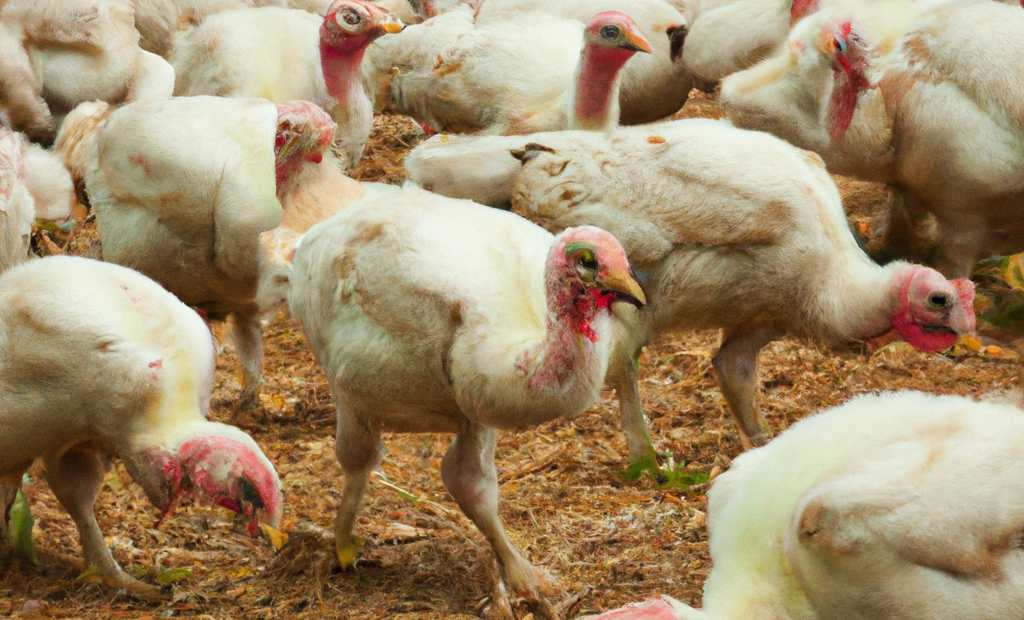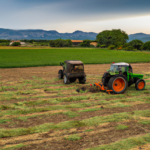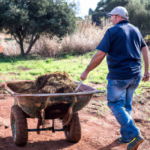The text highlights the importance of fertilizers, especially biofertilizers, in organic farming for pest control. Biofertilizers not only provide essential nutrients, but also improve soil health and make plants more resistant to pests and diseases. However, they should be used sparingly and according to the specific needs of the soil and plants. Furthermore, it is suggested that the use of fertilizers should be part of an integrated pest management approach that also includes practices such as crop rotation. Organic farming, through the use of biofertilizers and other agricultural products, represents a more sustainable and environmentally friendly strategy for pest control.
The success of any farming project depends largely on the ability to effectively control pests. The presence of these creatures can ruin the harvest, decrease productivity, and ultimately affect the profitability of the farm. Fortunately, there are different pest control methods and strategies that can help you protect your crops and ensure healthy production. In this article, we will explore how fertilizers, organic farming, biofertilizers, and agricultural products can become your allies in this constant fight. From the correct use of fertilizers to the adoption of organic farming strategies and the application of biofertilizers, we will offer you a series of useful tips that will help you keep your crops pest-free and optimize their yield. In addition, you will discover which are the essential agricultural products that you should have in your arsenal for effective pest control. Get ready to learn more about these strategies and how they can help you have a healthier and more productive crop!
- 1. "Using fertilizers correctly to prevent pests in your crops"
- 2. "Organic farming: an effective strategy for pest control"
- 3. "How biofertilizers can help in pest control"
- 4. "Agricultural products: essential tools for effective pest control"
1. "Using fertilizers correctly to prevent pests in your crops"
The correct use of fertilizers can play a crucial role in preventing pests in your crops. In the context of organic farming, biofertilizers are a particularly attractive option, not only for their nutritional benefits, but also for their ability to strengthen plants against various pests and diseases. These agricultural products work by improving soil health and increasing plant resistance, making them less attractive to pests. However, it is important to remember that even organic fertilizers should be used sparingly and according to the specific needs of the soil and plants to avoid over-fertilization problems. Ultimately, fertilizer use should be part of an integrated approach to pest management that also includes practices such as crop rotation and the use of pest-resistant plants.
2. "Organic farming: an effective strategy for pest control"
Organic farming has emerged as an effective pest control strategy, offering a healthier and more sustainable alternative to conventional methods. Instead of using chemical fertilizers and pesticides, organic farming relies on the use of biofertilizers and other naturally derived agricultural products. These organic inputs not only slow the spread of pests, but also improve soil health, promoting a healthier environment for plant growth. Biofertilizers, for example, provide essential nutrients to plants, strengthening them and making them more resistant to diseases and pest infestation. Thus, organic farming not only helps to effectively control pests, but also contributes to the sustainability and biodiversity of the agricultural ecosystem.
3. "How biofertilizers can help in pest control"
The use of biofertilizers in organic farming can be an effective weapon in pest control. Biofertilizers, which are fertilizers derived from organic materials, provide essential nutrients for healthy crop growth and also contribute to improving soil structure and its ability to retain water and nutrients. This additional strength and resistance can make plants less vulnerable to pests and diseases. In addition, some biofertilizers may contain microorganisms that are beneficial to the plant and that can compete with pests, thus reducing their ability to damage crops. In this sense, the use of biofertilizers can be an integral part of a pest control strategy in organic farming, as well as being a more sustainable and environmentally friendly option than the use of agricultural products based on synthetic chemicals.
4. "Agricultural products: essential tools for effective pest control"
Agricultural products are essential tools for effective pest control. Among these products, fertilizers play a crucial role in strengthening plants, making them more resistant to pests and diseases. However, it is important to opt for quality fertilizers and, if possible, organic. In this sense, organic farming offers a variety of biofertilizers that, in addition to nourishing plants, contribute to the balance of the ecosystem, favoring the presence of beneficial insects and microorganisms that help control pests naturally. Therefore, the choice of agricultural products must be careful and oriented towards sustainability, thus ensuring effective pest control without compromising the health of the ecosystem.
Effective pest control on crops is an essential task for any farmer. As we have explored in this article, there are various strategies and tools that can be implemented to combat pests efficiently and sustainably. Whether through the correct use of fertilizers, the implementation of organic farming practices, the use of biofertilizers, or the selection of suitable agricultural products, it is possible to keep pests at bay without causing damage to our crops or the environment. In conclusion, effective pest control requires knowledge, planning, and the correct application of various techniques and products. Ultimately, these practices will not only help keep our crops healthy, but also foster a more sustainable future for agriculture in general.


